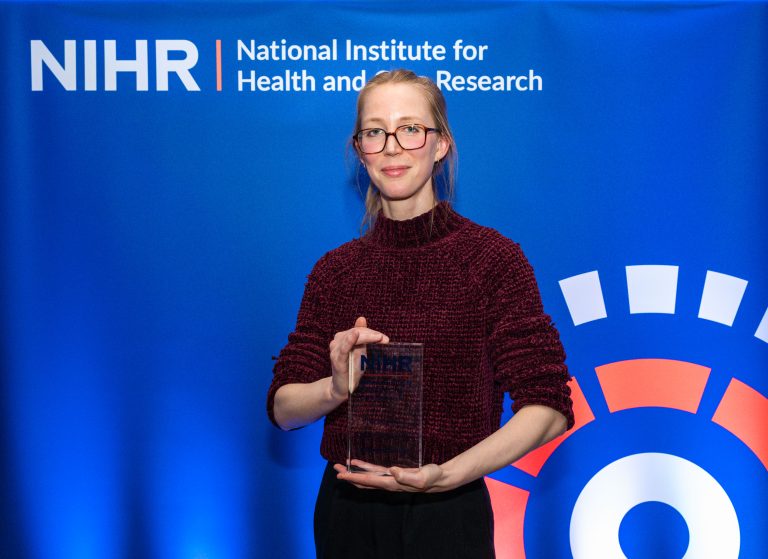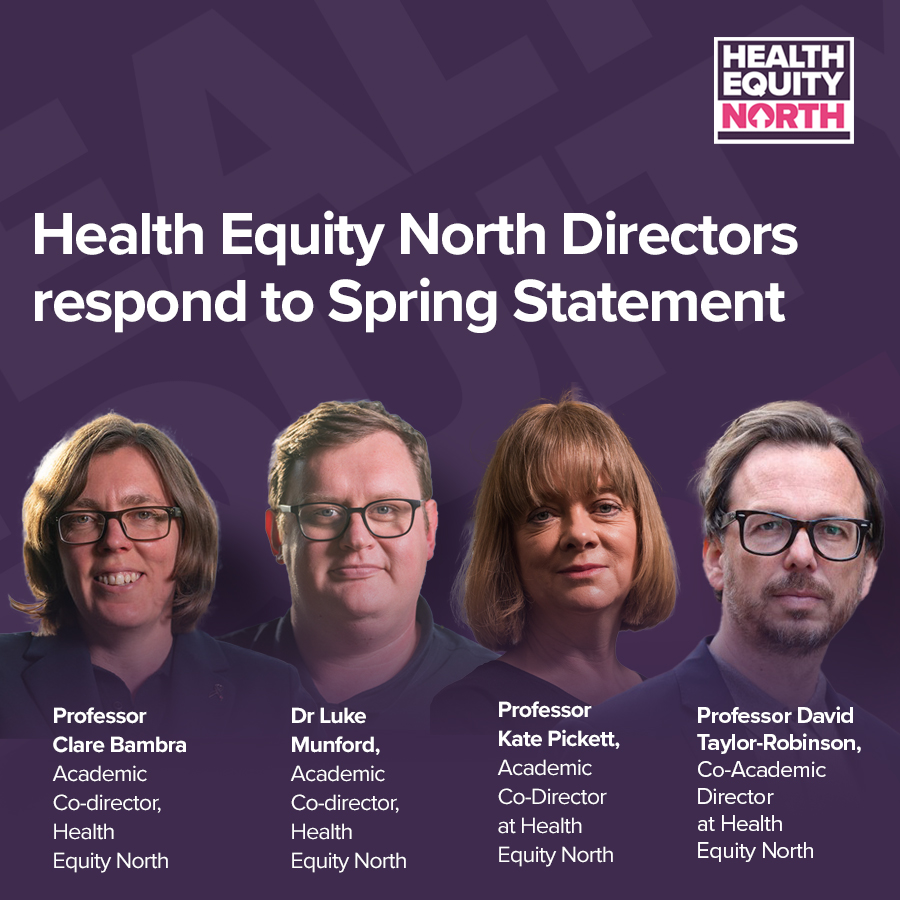Health Equity North report recognised with NIHR award

A researcher who co-authored Health Equity North’s Children in Care report has received an award for her work in this field.
Dr Davara Bennett of the University of Liverpool has been awarded one of the new NIHR Impact prizes, announced last week (21st March 2025). The award recognised Dr Bennett’s research to improve understanding of inequalities in children entering care in England, including her work of the Health Equity North report released in 2024. The research project identified obstacles to tackling the socioeconomic drivers of care entry at a local level. It also proposed strategies for overcoming them. The project led to the formation of a Research Development Network for Children at Risk, which will carry forward the work.
The new NIHR awards celebrate some of the nation’s most promising researchers and the impact their work is making. These recognise major improvements in health over the last two decades, driven by research and scientific advances.
You can view the impact video submission at https://www.youtube.com/watch?v=1Wn-I7ANTHM&t=129s&ab_channel=NIHRSchoolforPublicHealthResearch
Davara said
“It’s an honour to be awarded one of the NIHR Impact Prizes. This is a fantastic opportunity to highlight our team’s efforts to galvanise action on the preventable causes of children being separated from their families. No one can achieve impact alone, and the prize is a testament to my teachers: academics, activists, practitioners, policy experts and care experienced people, who see injustice and roll up their sleeves. I’m grateful to the team at Health Equity North for the major part they played in getting the policy recommendations out there – and I couldn’t have made the impact video without them.
There’s just one thing that bothers me about the video. In it, I stress the importance of foregrounding care experienced voices. But Mia Hankinson – my care-experienced collaborator-in-impact – is seen, not heard. So I’d like to take this opportunity to right a wrong, and excerpt the lived experience case study Mia wrote for the Child of the North report.”:
“I was in local authority foster care from the age of 14 with social care involvement from a much younger age. I don’t feel I can describe the few measures offered to myself and my family as supportive. Beneficial services providing care in my local area (Sefton) such as ‘Sure Start’ and homes offering respite care were forced to cease due to underfunding. Waiting lists for mental health services are forever growing but it seemed that the system did not even wish to open this door of support. I have long-standing mental health difficulties that spiralled upon entering foster care, I did not receive CAMHS support until then. I was hospitalised within two months of entering care and one month of access to mental health services with Anorexia Nervosa. Children should not have to reach extreme desperation in order to be protected by structures with parental responsibility: the system itself is a neglectful ‘parent’.
“I suffered massively with placement instability, moving through five placements in the space of three years. Sibling separation meant that at 21 years old I have not lived with my twin sister for eight years. At the age of 16 myself and my younger sister (11 at the time) lived in a home in which I felt emotionally disregarded, worsening my mental and physical health. The decision to leave destroyed me, the system informed me my younger sister would not join me if I moved: a child, battling a choice of whether to stay with their sibling but remain sick and uncared for, or to leave that hostile environment alone.
“Child protection orders do not seem all that protective. There is no clear narrative of the birth family’s (certain members or as a whole) use of long-term resource, a more sustainable resource to benefit the child and their wider network. The point of being in care is to be cared for; underfunding, corrupt systems, and scarce prevention strategies, in my opinion, is not care.”
The full list of NIHR Impact Award winners can be viewed at https://www.nihr.ac.uk/news/nihr-announces-winners-first-ever-impact-prizes





